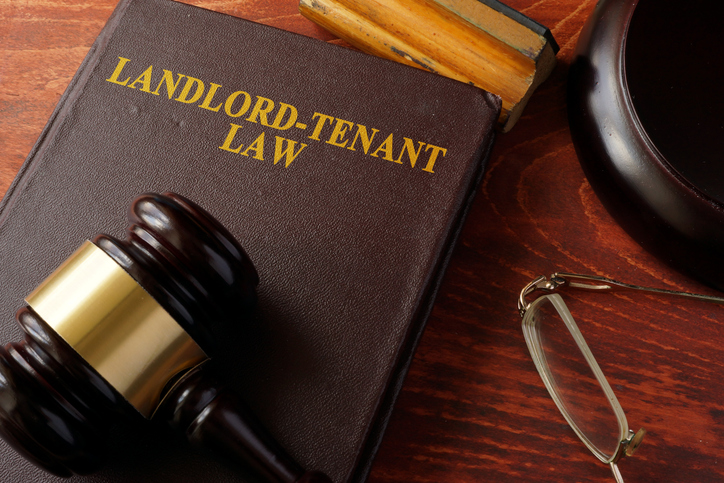
Managing rental properties comes with its fair share of headaches — and unfortunately, a lot of myths that don’t help. Misinformation spreads fast and believing only what you hear can cost you time and money. As a property manager or landlord, knowing the real rules of the game is key to keeping things running smoothly. Let’s debunk some common myths under landlord-tenant laws so you can avoid unnecessary drama or legal issues.
Question: The landlord is telling me they do not want to rent to anyone with a criminal background. Can I deny prospective tenants for that?
Answer: Yes, criminal convictions can be a basis to deny a rental application, but the details matter. The U.S. Department of Housing and Urban Development (HUD) issued guidance in 2016 regarding screening tenants with a criminal background. The guidance states that private or public housing providers need to consider factors such as the nature and severity of the crime and the amount of time that has passed to determine if the person would pose a direct threat to the health or safety of other residents. When screening tenants, it’s imperative that whatever process is in place is applied equally to all applicants and tenants. Blanket bans, such as refusing to rent to anyone with any criminal background, no matter the offense or how long ago the conviction occurred, can be a violation of the fair housing rules.
Question: The tenant has an assistance animal. Can I require the tenant to clean up after the animal? And can I charge them for damage done by the animal?
Answer: A tenant can be held responsible for health and safety issues with their assistance animal, such as being up to date on vaccinations, cleaning up after the animal and making sure it does not disturb neighbors or other tenants with excessive noise. For example, if the rules and regs for the rental unit provide for “quiet hours” between 11 p.m. and 6 a.m. and a dog disturbs neighbors by barking until 3 a.m., that tenant would generally be treated the same as if they were playing loud music until 3 a.m. And while an additional pet fee cannot be charged (remember they are not pets), a housing provider may charge a tenant for damage an assistance animal causes if it is the provider’s usual practice to charge for damage caused by tenants (or deduct it from the standard security deposits imposed on all tenants). If a cat shreds curtains supplied by the landlord, it’s the same as if a child cuts them with scissors.
HUD has issued guidance on all questions housing providers may have about assistance animals. PAR also has a great resource page that may answer a lot of your “what if” questions as well.
Question: Landlord wants to paint the unit when the tenant moves out. Can he charge it against their security deposit?
Answer: It depends. I would follow up with this question: is it due to normal wear and tear, or does the landlord need to do it to repair damage by the tenant caused by negligence? A landlord can retain some or all the security deposit to repair damages and cover unpaid rent, but normal wear and tear of the property due to everyday use is not a legal reason to withhold the security deposit. So if the tenant put their foot through a wall or splattered something that stained the existing paint, that could be recovered. If the landlord has a policy to paint between every tenant so the property looks nice and never gets dingy, that’s probably normal wear and tear and could not be deducted.
Question: The landlord wants me to get rid of the tenant’s stuff they left behind. Can I just throw it away? It’s been weeks since they’ve moved out!
Answer: No, you cannot just throw it away. There is a legal process for this. You need to refer to the Abandoned Personal Property Act, which is an amendment to the Landlord Tenant Act, and has a very strict timeline for how to handle tenant’s personal property. If the tenant was not evicted, the landlord has 10 days to contact the tenant to retrieve the property. If the tenant notifies the landlord, within 10 days of leaving the property, that they will get their possessions, then the landlord needs to keep the property for 30 days to allow the tenant to retrieve the items. After 30 days, if the tenant fails to retrieve their items, then the landlord can dispose of them. The landlord is allowed to charge the tenant a fee for storage. The timeline is slightly different if the tenant was evicted, so please refer to the Act when your landlord is in this situation.
If you do have a question as a landlord or property manager, remember the lease may have the answers! It is up to the landlord to have a well-written lease. If you are using the PAR Residential Lease (Form RL), you can always call the PAR Legal Hotline and we can any questions regarding the form.
Topics
Member Discussion
Recent Articles
-
Key Moments: Realtors® Share Stories From on the Job
- July 18, 2025
- 3 min. read
“It’s incredibly rewarding to be a change-maker for families in this role,” says RAMP member Todd Van Horn as he recalls his time working with a talented chef and his family of six in the 1990s.
-
Aging in Place Remodeling Projects Are Decreasing
- July 17, 2025
- 2 min. read
Only 56% of professional remodelers were involved in projects designed to allow homeowners to age in place as of Q1 2025, an all-time low according to NAHB.
-
Over 200 Suburbs Have More Renters Than Owners
- July 16, 2025
- 2 min. read
In five years alone (2018-2023), 15 suburbs flipped from having a majority of owners to a majority of renters. This includes the Philadelphia suburb of King of Prussia.
Daily Emails
You’ll be the first to know about real estate trends and various legal happenings. Stay up-to-date by subscribing to JustListed.



